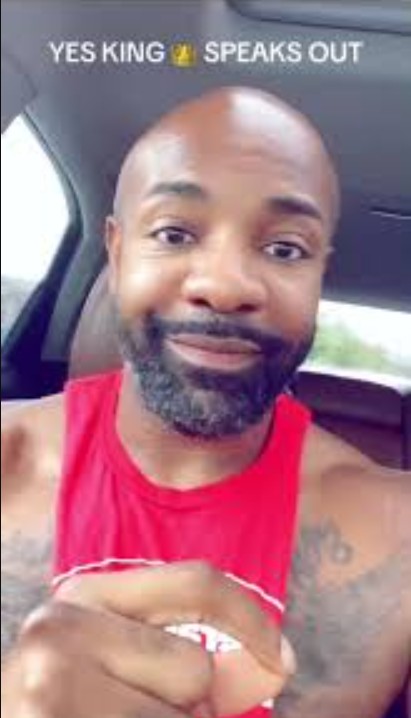Yes King Original Video and Its Rise Across Social Platforms
In today’s fast-changing digital culture, internet memes have become a cornerstone of online expression, blending entertainment with lightning-fast communication. Whether they take the form of images, short videos, or text captions, memes distill complex social dynamics and cultural trends into content that is easy to share and understand. As they move through platforms like X/Twitter, Instagram, TikTok, and beyond, memes often gain massive popularity, shaping public conversations and even influencing political or social debates. A striking example of this phenomenon is the Yes King original video, which quickly rose to meme status, demonstrating how far and fast digital content can travel.

Among the countless memes that have captured attention across communities, one stands out for its unexpected journey into mainstream humor: “Is That Dick Good? ‘Yes King.’” Originating from an explicit video between two adult performers, this short exchange was first posted in March 2023 by Twitter user @LoveAndLightTv. In the clip, one performer asks a playful question, and the other responds enthusiastically, “Yes King.” That brief moment was soon extracted from its original context, reshaped as an ironic punchline, and shared widely across TikTok, YouTube, and other social networks. Its spread highlights how internet users repurpose material sometimes from surprising sources turning it into humor that sparks debate about the limits of comedy and the evolving nature of meme culture in the digital age.
Contents
Origins of the Meme and Video
The now-famous exchange from the clip in which the creator @LoveAndLightTv jokingly asks a partner a provocative question, prompting the spirited reply, “Yes King” quickly drew attention online. Captured in just a few seconds, this playful moment combined an unmistakable sense of consent with cheeky humor, making it stand out even beyond audiences typically interested in adult material.
Exploring the Origins of the Yes King Video Phenomenon
A follow-up remark, “How good is that?” though less widely quoted, added to the scene’s boldness and helped cement its place as an amusing, highly shareable meme.
Spread and Reception
The meme’s transformation from a small adult-content clip into a widely recognized internet phenomenon began soon after its release. TikTok a platform known for rapid trends and its ability to turn brief audio or video snippets into viral sensations played a central role. Users there reimagined the sound bite in playful contexts, from skits to animated edits, showcasing its adaptability and giving it new life beyond its original setting.

At the same time, the meme gained traction on sites like iFunny and YouTube, where communities often gravitate toward ironic or satirical material. On YouTube, the clip frequently appeared in “funny moments” compilations and other roundups of online culture, helping secure its status as a recognizable meme. While the response was largely enthusiastic, with many enjoying its absurd humor, it also prompted debates about whether adult-themed material should be remixed so freely especially among audiences less accustomed to that type of content.
Different corners of the internet reacted in their own ways. Some embraced the meme for its surprise factor and timing, while others found it too explicit or potentially offensive. The phrase at the center of the joke soon evolved into a shorthand expression of approval in contexts far removed from its source, illustrating how quickly language from memes can filter into everyday conversation.
Ultimately, “Is That Dick Good? ‘Yes King’” became an emblem of how modern meme culture can take a moment meant for a small, specific audience and reframe it as a shared reference point across the web. Its popularity highlights the unpredictable nature of internet humor, where almost any snippet regardless of intent or origin can be remixed into global entertainment and discussion.
Analysis of Meme Popularity
The “Is That Dick Good? ‘Yes King’” meme rose to prominence largely because of its playful, ironic tone. In an era where memes serve as a form of cultural shorthand, audiences often gravitate toward content that takes familiar material and places it in unexpected contexts. By lifting a line from an adult-oriented video and reframing it within lighthearted or absurd scenarios, the meme created a striking contrast between the seriousness usually linked to explicit content and the humor of everyday conversation. This tension is at the heart of its appeal, drawing in viewers who enjoy humor rooted in surprise and clever recontextualization.
The meme also aligns with a broader trend sometimes called “thugposting,” a genre that draws inspiration from elements of urban or hip-hop culture and playfully twists them into humorous or even wholesome narratives. Other examples, such as Thug Shaker or Ambatukam, rely on the same principle: they take something perceived as edgy or intense and invert it, producing an amusingly offbeat storyline. The success of these memes lies in their ability to subvert expectations, transforming seemingly rigid material into something accessible and entertaining.
Explicit content plays a key role in the trajectory of this meme. Today’s online culture is more willing to engage with risqué material, allowing clips once deemed taboo to circulate widely. By testing the limits of comedy and social norms, memes like this encourage conversations about what belongs in mainstream discourse and contribute to a gradual softening of stigma around adult themes in digital spaces.
Impact on Creators
The viral success of “Is That Dick Good? ‘Yes King’” had a notable impact on its creators, @ThickMuthaFukah and @LoveAndLightTv. As the meme spread across social media, both saw a surge in visibility and follower growth, reaching far beyond their usual audience. Their brief exchange, once limited to a specific niche, became part of internet pop culture, drawing attention from meme enthusiasts and casual social media users who might never have encountered their work otherwise.
Both performers approached their newfound fame with a mix of humor and entrepreneurial focus. Recognizing the opportunities presented by the meme’s popularity, they began leveraging the attention to promote their content more strategically, turning viral visibility into tangible success. They also engaged with their broader audience on platforms like Twitter/X, TikTok, and Instagram, responding to fan discussions and often joining in on the jokes that sprang from the meme.
In interviews and public comments, @ThickMuthaFukah and @LoveAndLightTv have expressed an upbeat view of their unexpected rise in prominence. They’ve highlighted how internet culture can elevate people and moments in unpredictable ways, and they’ve shown appreciation for the new community that has formed around their work.
Ultimately, the meme’s influence on its originators underscores how quickly viral content can reshape public perception and open new professional pathways. It demonstrates how adult-content creators and digital creators more broadly can bridge the gap between niche entertainment and mainstream online culture, using humor and authenticity to connect with audiences on a wider scale.
Broader Implications
The “Is That Dick Good? ‘Yes King’” meme offers valuable insight into the changing landscape of internet culture and the evolution of memes. It reflects a broader trend in which material once confined to adult spaces can, through humor and remixing, enter the mainstream as viral content. By recontextualizing explicit material, online communities continue to expand the boundaries of what’s seen as acceptable fodder for comedy, pointing to a cultural shift toward greater openness and inclusivity in digital expression.
However, incorporating adult themes into memes raises important ethical questions. While such content can challenge overly rigid cultural norms and serve as a form of artistic expression, it also carries risks: desensitizing audiences to explicit material, exposing minors to inappropriate content, and complicating discussions of consent when clips circulate beyond their intended context. Memes of this kind can help destigmatize certain aspects, yet they may also unintentionally trivialize serious subjects or reinforce stereotypes when stripped of their original nuance.
The meme’s trajectory highlights the tension between creative freedom and responsible content sharing. It serves as a case study in how humor, privacy, publicity, and platform moderation intersect in the digital era. What began as a simple promotional video by two performers became a springboard for conversations about taste, freedom of expression, and the limits of virality.
From this analysis emerge several key themes: the ability of memes to boost the profiles of their subjects, the power of irony in driving popularity, and the ethical complexities that come with repurposing explicit material for entertainment. The journey of “Is That Dick Good? ‘Yes King’” from niche clip to globally recognizable reference illustrates the fleeting yet transformative nature of internet fame, with opportunities and challenges for those caught in its spotlight.
Looking ahead, meme culture seems destined to evolve alongside technology and shifting social norms. As adult-oriented content becomes more visible online, society will need to grapple with how to balance humor, consent, and responsible curation. Will future memes continue to test the limits of taste? How will platforms and creators navigate the line between creativity and accountability? What remains clear is that memes will keep shaping, and reflecting, the ever-changing fabric of the digital age.
Breaking News -Rock Paper Scissors Yellow Dress Video and Everything
Jaden Newman Video Leak Goes Viral on X/Twitter and Reddit
Georgia School Shooting Video Prompts Local
Mar Urista Video Viral and the Impact on Privacy Concerns
Edwin Cruz Gomez Full Video and Jhoanny Alvarez Death
Yailin and Tekashi Video Leak Leaves Fans in Shock
Whitney Wren and Christen Whitman Video Surfaces
